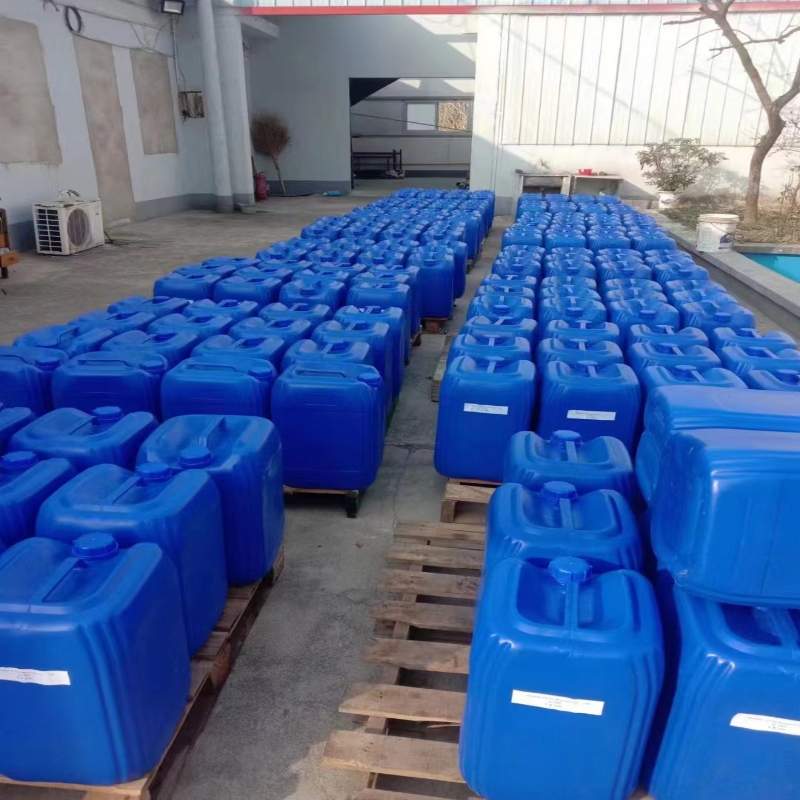-
Categories
-
Pharmaceutical Intermediates
-
Active Pharmaceutical Ingredients
-
Food Additives
- Industrial Coatings
- Agrochemicals
- Dyes and Pigments
- Surfactant
- Flavors and Fragrances
- Chemical Reagents
- Catalyst and Auxiliary
- Natural Products
- Inorganic Chemistry
-
Organic Chemistry
-
Biochemical Engineering
- Analytical Chemistry
-
Cosmetic Ingredient
- Water Treatment Chemical
-
Pharmaceutical Intermediates
Promotion
ECHEMI Mall
Wholesale
Weekly Price
Exhibition
News
-
Trade Service
With bullish and bearish views colliding with each other, the oil market experienced another turbulent week
.
There are growing concerns that a potential recession could severely impact oil demand
.
Overall, the market seems more worried about the increased likelihood of a recession than a fall in U.
S
.
fuel inventories to multi-year lows.
According to the oil price network on May 21, the oil market ended another turbulent trading week, fluctuating back and forth between bullish and bearish every day, fluctuating
up and down in the range of $5 per barrel.
Both benchmarks hit eight-week highs early Tuesday but then retreated later in the day and joined the sell-off on Wall Street on Wednesday as investors renewed concerns about a possible recession as top retailers pointed to soaring costs and supply chain bottlenecks
in their quarterly earnings reports.
In the week ending May 20, oil market participants focused more on "recession fears" headlines than on the weekly U.
S.
oil state report
.
The report showed gasoline inventories fell again, implicitly increasing U.
S.
domestic demand, which will only rise
further as the summer driving season moves into the record high, despite record U.
S.
gasoline prices.
Andrew Lipow, president of Lipow Oil Associates in Houston, told Reuters on Thursday: "The market reacts to a variety of different headlines every hour, and the oil market moves more exaggerated
every day.
" "Earlier in the day, crude oil prices plummeted, the dollar weakened, and oil prices rose
.
Overall, the market seems more worried about the increased likelihood of a recession than U.
S.
fuel inventories falling to multi-year lows at this time of year
.
Investors and speculators pulled away from oil, a riskier asset as fears of a more pronounced slowdown or even recession in the global economy intensified and dampened risk appetite
.
However, while the market focuses on the bleaker economic outlook, it ignores – at least in the past week – that U.
S.
fuel inventories are extremely low
.
Not that oil demand has soared, but that global and U.
S.
supply capacity is now several million barrels
per day less than before the pandemic.
Rising demand since the economy reopened and people returned to travel, combined with declining refining capacity and very tight distillate markets, has led to U.
S.
product inventories falling below seasonal averages and multi-year lows, with inventories reported on the East Coast at record lows
.
Total U.
S.
auto gasoline inventories fell by 4.
8 million barrels in the week ended May 13, about 8 percent
below the five-year average for the same period, EIA said in its latest weekly inventory report on May 18.
Despite record prices across the United States, gasoline demand is still growing
as measured by product availability.
Gasoline inventories in the U.
S.
are at their lowest level since 2014, and inventories on the East Coast are even tighter, at their lowest level
since 2011.
ING strategists Warren Patterson and Wenyu Yao wrote Thursday: "While refineries still have some room to increase operations (utilization is up 1.
8 percentage points to 91.
8 percent this week), gasoline demand should increase as we head into driving season, suggesting that we will see further tightening
in the U.
S.
gasoline market.
" In this case, we may see further pressure from the US government to try to control gasoline prices
.
”
Bjarne Schieldrop, Chief Commodities at SEB, said: "The global refining system is severely strained
as capacity is reduced in 2020/2021 and demand for petroleum products recovers.
We are now entering the summer driving season, with a significant increase in gasoline demand and very low inventories at the start
.
”
Saxo Bank said on Thursday that concerns about economic growth, as well as fuel demand, had not yet been reflected in
the actual data.
"In the public consumer market, however, this concern has not yet been reflected, with crude oil and gasoline inventories still falling, while implied gasoline demand in the U.
S.
, despite record prices, remains strong
.
"
Saxobank's strategy team noted that "the market is likely to focus on the overall level of risk appetite currently facing challenges"
.







